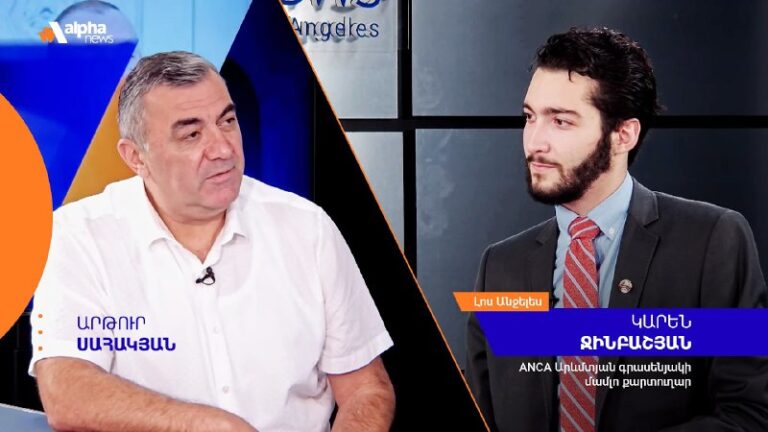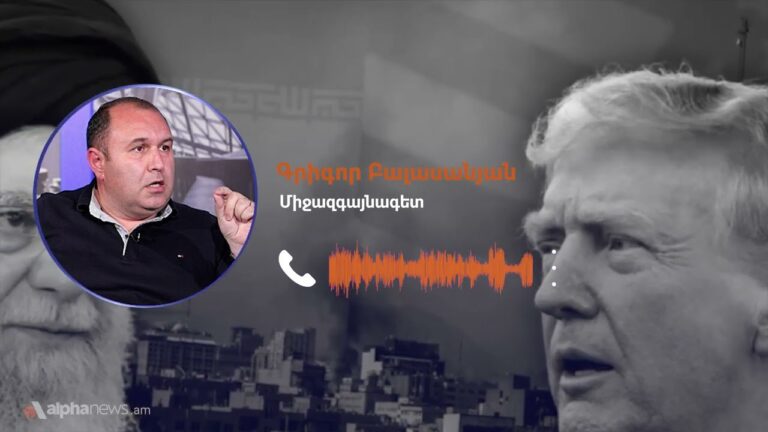Russia and Iran are well aware of the limit of Pashinyan Armenia’s sovereignty
September 10 2024, 12:26
On December 8, 2023, the President of Azerbaijan unveiled one of the negotiating options regarding the unblocking of transport communications in the region, which was discussed at the Western negotiating platform. We are talking about the “Kaliningrad model of Azerbaijanis’ access to Syunik,” which does not involve transport stops on the territory of Armenia. Some time after Aliyev’s statements, a number of Armenian officials, including Alen Simonyan, confirmed that control over the road between Azerbaijan and Nakhichevan in Syunik could be transferred to a private company.
Although the Speaker of the National Assembly Alen Simonyan today convinced journalists that such an option does not violate the sovereignty of the country, however, the fact remains that by signing the document on the transfer of control over communication to a private company, the Republic of Armenia officially recognizes the fact of inability to ensure security on its territory and will give this responsibility (that is, part of sovereignty) to a private organization, which, in fact, is more reliable than the security agencies of the Republic of Armenia.
In this situation, there is another important nuance: taking into account the geopolitical preferences of the Armenian authorities and the venue where the idea of transferring control over communications appeared, it can be assumed that the company can be a logical continuation of the presence of European observers in Armenia, becoming part of the unified system of the West’s presence in Transcaucasia.
Iran and Russia surely understand this, and accordingly they cannot but act. In the recent period, Russia has been actively promoting the idea of the full implementation of the provisions set out in the November 9, 2020 document, including the 9th paragraph of the said document, providing for the opening of regional communications—not the opening of a single route (for example, the Zangezur corridor), but all communications, not only in Armenia but also in the whole region.
Iran considers Russia’s position, conditioned by Pashinyan’s desire to surrender the corridor to the West under the guise of controlling the communications of a private company, unacceptable. This is the reason for Tehran’s latest information pressure on Moscow.
Iran, being a state with a centuries-old continuous history of statehood, cannot but understand that the topic of transferring control over Syunik communications appeared in Prague in 2022, when Pashinyan surrendered Karabakh to Azerbaijan. It is obvious that during the period of the closest contacts between the leaders of Iran and Russia, which will take place in October at the BRICS summit in Kazan, they are likely to come to an understanding on the issue that the problem is not in the Russian option of unblocking communications, which is not directed against Iran but is aimed at implementing the joint statement of 17 July 2024, which says that the parties are against involvement of non-regional players in regional processes.
It is obvious that Tehran and Moscow defend their national interests, which do not always coincide on all occasions. It is important to understand, however, that due to the vague position of the Armenian authorities related to unblocking communications, Iran and Russia will not abandon a mutually beneficial partnership (a vivid example of this is the recent supply of ballistic missiles by Tehran to Russia). It is also obvious that the developments around Armenia are taking place with the shameful silence of the country’s leadership. For example, on September 9, Nikol Pashinyan went live, did not comment on the situation, but only invited the citizens of Armenia to compile a register and rating of the problems of their own locality. Working as a “country’s housekeeper” is the limit of Pashinyan’s sovereignty. Moscow and Tehran (Baku and Ankara, as well as Washington, London, and Brussels) are well aware of the limit of Pashinyan’s Armenia’s sovereignty.
A state that does not have red lines…
The only problem is that due to the transformation into a ball of contradictions, Armenia can literally be torn apart.
Think about it…







